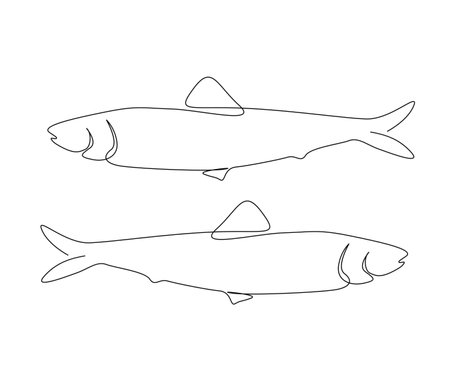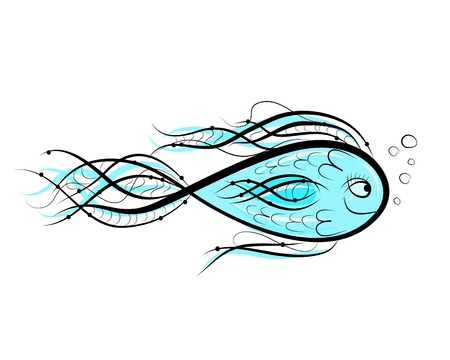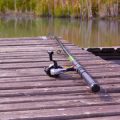Introduction to British Carp Fishing Clubs
Carp fishing clubs are an integral part of the angling landscape in the United Kingdom, weaving together generations of tradition, friendship, and a deep love for the great British outdoors. These clubs, often nestled beside tranquil lakes or winding rivers, have long been gathering spots where anglers young and old share not only tips and stories but also values rooted in respect for nature and good sportsmanship. The origins of carp fishing clubs in Britain stretch back over a century, with many local societies forming in the early 1900s as communities sought ways to enjoy leisure time together after the rigours of industrial life. Over time, these clubs blossomed into vibrant hubs of activity, welcoming families and newcomers with open arms. They have played a pivotal role in fostering a sense of belonging and continuity among members—many of whom pass down their rods and reels from one generation to the next. In the UK, carp fishing is more than just catching a fish; its about peaceful mornings by the water, hearty chats over tea in the club hut, and celebrating every hard-won catch as a small victory for both skill and patience. This special blend of tradition and community spirit is what gives British carp fishing clubs their unique place in national culture. Whether you’re a seasoned angler or just fancy a dabble at weekends, joining your local club means becoming part of a warm-hearted network that cherishes camaraderie as much as competition. As we explore how these beloved institutions have influenced tournament angling’s rise across Britain, it’s clear that their impact goes far beyond the water’s edge.
2. Fostering a Community Spirit
One of the most cherished aspects of British carp fishing clubs is their ability to unite people from all walks of life, spanning across generations. The local angling club is more than just a venue for fishing; it becomes a hub of community spirit where friendships are forged and stories are shared over a cuppa by the lakeside. Youngsters learn the ropes from seasoned anglers, who in turn find joy in passing on their knowledge, creating a cycle of mentorship that keeps traditional skills alive.
The Role of Clubs in Building Camaraderie
Whether it’s a Sunday morning match or a weekend social event, members gather not just to fish but to be part of something bigger. These gatherings promote mutual respect and understanding among members, regardless of age or background. The shared experience of waiting for that elusive bite fosters patience and teamwork, while healthy competition adds an exciting edge to every meet.
Mentorship Across Generations
The tradition of experienced anglers guiding newcomers is at the heart of these clubs. This unique relationship goes beyond teaching casting techniques or bait selection—it instils values such as sportsmanship, perseverance, and appreciation for nature. Many youngsters have found lifelong mentors and even family friends through these connections.
Benefits of Club Membership
| Benefit | Description |
|---|---|
| Camaraderie | Develops strong friendships through shared interests |
| Mentorship | Opportunities for learning from experienced anglers |
| Belonging | Cultivates a sense of pride and community identity |
| Wellbeing | Promotes mental health through time outdoors and social engagement |
| Skill Development | Improves angling abilities in a supportive environment |
This nurturing environment is fundamental to the growth of tournament angling in Britain, as it not only hones skills but also inspires loyalty and enthusiasm among members. The friendly rivalry nurtured within these clubs often translates into spirited participation at regional and national competitions, further strengthening the fabric of British angling culture.

3. Nurturing Young Talent
One of the most heartwarming aspects of British carp fishing clubs is their dedication to nurturing young talent and introducing newcomers to the joys of angling. These clubs create a welcoming environment where youngsters feel comfortable learning at their own pace, all while receiving guidance from experienced members. The clubs often organise junior days, family-friendly events, and special coaching sessions, making it easy for children to get hands-on experience in a safe and supportive setting.
The emphasis on encouragement and personal growth helps build not just angling skills but also confidence and resilience among young participants. Many clubs have specific programmes aimed at teaching youngsters about water safety, fish welfare, and responsible angling—values that are central to the British way of enjoying the sport. Through these initiatives, children develop a deep respect for nature and learn important life skills alongside their fishing techniques.
How Clubs Support Young Anglers
| Initiative | Description |
|---|---|
| Junior Membership Schemes | Reduced fees or free membership for under-16s, making it accessible for families. |
| Mentorship Programmes | Pairing youngsters with experienced anglers who provide hands-on tuition and support. |
| Beginner Workshops | Structured sessions covering essential skills such as casting, baiting, and reading the water. |
| Tournament Opportunities | Special junior competitions that offer a taste of tournament angling in a friendly atmosphere. |
Building Lifelong Passion
The sense of community within British carp fishing clubs ensures that every young member feels valued and included. By providing positive role models and celebrating achievements—no matter how small—clubs sow the seeds for lifelong enthusiasm for angling. This nurturing approach not only boosts participation in club activities but also lays a strong foundation for the future of tournament angling across the UK.
4. The Evolution of Tournament Angling
When we look back at the journey of tournament angling in the UK, it’s clear that grassroots carp fishing clubs have been the backbone of its steady growth. These local clubs, often family-friendly and community-oriented, have nurtured generations of anglers, turning casual interest into a passionate pursuit. By organising friendly matches on weekends and bank holidays, they created an accessible entry point for budding competitors, regardless of age or background.
Over time, these grassroots events evolved from simple fun days out to more structured competitions with rules, scoring systems, and even trophies. Club members found themselves not just fishing for leisure but learning the ropes of fair play, sportsmanship, and environmental respect—values still championed in today’s tournaments. Local clubs set up internal leagues and inter-club challenges, forming the early framework for the wider tournament scene we see across Britain now.
The Role of Clubs in Shaping Competitive Angling
| Grassroots Activity | Impact on Tournament Angling |
|---|---|
| Organising regular club matches | Provided structured competition experience |
| Youth engagement programmes | Nurtured young talent and ensured generational continuity |
| Community events and open days | Made competitive angling more inclusive and approachable |
| Rule-making and stewardship initiatives | Established standards now used in national tournaments |
A Welcoming Pathway for All Ages
British carp fishing clubs have always prided themselves on their warm welcome. Whether you’re a seasoned angler or just starting out with your first rod licence, there’s a place by the lake for everyone. This inclusiveness has encouraged families to get involved together, passing down skills and stories along the bankside—a tradition that continues to enrich the sport today.
The Quiet Influence of Community Values
Through mentorship and shared experiences, local clubs instilled values like patience, respect for nature, and camaraderie—qualities that underpin British tournament angling’s unique character. As these home-grown anglers moved up to regional and national competitions, they brought with them not only technical skill but also the heart-warming spirit fostered at club level. In this way, British carp fishing clubs remain quietly influential in shaping the future of competitive angling across the country.
5. Raising the Standard of Competition
One of the most significant impacts that British carp fishing clubs have had on tournament angling is their role in raising the standard of competition nationwide. The structured environment provided by these clubs encourages members to develop their skills, while local tournaments offer a proving ground for both new and seasoned anglers alike. This not only fosters a healthy sense of rivalry but also cultivates a spirit of camaraderie and mutual respect.
Club Structures: A Foundation for Growth
British carp fishing clubs are typically well-organised, with clear rules, regular meetings, and dedicated committees overseeing events. These structures ensure fairness, transparency, and continuity in club activities. Many clubs also provide training sessions and mentorship programmes, helping less experienced anglers learn from those with more expertise. This culture of sharing knowledge means that best practices quickly become widespread.
How Local Tournaments Improve Angling Standards
| Aspect | Influence on Tournament Angling |
|---|---|
| Rules & Regulations | Standardised rules promote consistency and fairness across competitions, setting clear expectations for all participants. |
| Judging & Scoring | Transparent judging systems help build trust among competitors and ensure that skill is properly recognised. |
| Sportsmanship | Clubs actively encourage respect between anglers, reducing disputes and fostering supportive communities. |
| Technique Sharing | Tournament settings motivate anglers to refine their techniques and share tips, pushing overall standards higher. |
The Spread of Best Practices Across Britain
As more local tournaments are held under the umbrella of various fishing clubs, there’s been a natural spread of good habits and innovative approaches throughout the country. Whether it’s through official coaching days or informal chats bankside, knowledge travels fast in the close-knit world of British carp angling. This has led to safer fish handling methods, improved environmental awareness, and better preparation by competitors—raising the bar for everyone involved.
A Lasting Legacy of Higher Standards
Ultimately, the influence of British carp fishing clubs extends far beyond individual lakes or matches. By nurturing talent, encouraging fair play, and championing best practices at every turn, these clubs have helped transform tournament angling into a respected sport with ever-increasing standards—a legacy that benefits both today’s anglers and future generations alike.
6. Building Lifelong Friendships and Traditions
One of the most heart-warming impacts of British carp fishing clubs on tournament angling is the way these communities foster lasting friendships and treasured traditions. For many, joining a local club isn’t just about catching carp or competing; it’s about becoming part of a welcoming circle where generations come together, share stories, and make memories that last a lifetime.
Angling in the UK has long been woven into the fabric of family life, with weekends spent beside tranquil lakes or rivers. Many club members recall their first fishing trips with parents or grandparents, learning the ropes and soaking up the unique camaraderie only found amongst fellow anglers. As new faces join the club, they are warmly welcomed, often finding mentors and friends who are eager to pass down both skills and cherished local customs.
The social side of British carp fishing clubs cannot be overstated. From friendly banter on the bankside to lively annual socials, barbecues, and fundraising events, these activities help strengthen community spirit and reinforce the sense of belonging. For families, this means children grow up not only learning about angling but also experiencing firsthand the value of teamwork, respect for nature, and community support.
Traditions That Enrich Club Life
| Tradition | Description | Impact on Members |
|---|---|---|
| Annual Carp Match | A friendly competition held every summer, open to all ages | Encourages intergenerational bonding and a healthy competitive spirit |
| Bank Holiday Picnics | Family-friendly gatherings with food, games, and stories by the water | Fosters inclusivity and strengthens family ties within the club |
| Trophy Night | Ceremony celebrating angling achievements big and small | Builds pride and motivates members to participate in future tournaments |
| Youth Coaching Days | Experienced anglers teaching youngsters essential fishing skills | Nurtures future talent and passes on local knowledge |
Cherished Stories from the Bankside
Club members often share tales of lifelong friendships forged during night sessions under starry skies or early mornings when mist rises off the water. Many recount how these relationships extend far beyond fishing—supporting each other through life’s ups and downs, celebrating milestones, or simply enjoying a cup of tea together after a day’s angling.
The Lasting Value of Club Life for Families and Communities
The influence of British carp fishing clubs reaches well beyond tournament angling. By nurturing strong social bonds and preserving beloved traditions, these clubs create a supportive network where everyone—from novices to old hands—feels valued. In doing so, they ensure that both the sport of angling and its community spirit continue to thrive for generations to come.
7. Looking Ahead: The Future of Carp Angling in Britain
As we reflect on the journey so far, it’s clear that British carp fishing clubs have shaped more than just tournaments—they’ve influenced the very fabric of angling culture across the UK. But what does the future hold for tournament angling, and how can clubs continue to be positive forces for growth? Let’s explore some key challenges and opportunities that lie ahead.
Championing Environmental Stewardship
With increasing awareness about the environment, clubs are at the forefront of promoting sustainable practices. Initiatives such as catch-and-release policies, habitat restoration projects, and educational workshops help ensure that our beloved waters remain healthy for future generations. By encouraging members to respect nature, clubs foster a sense of responsibility that extends beyond the competition.
Opportunities for Growth Through Inclusivity
One of the most exciting prospects is making carp angling accessible to everyone. Clubs are now welcoming anglers from all backgrounds, ages, and abilities. From family-friendly events to women’s only competitions and adaptive fishing programmes for those with disabilities, inclusivity is becoming a hallmark of club culture. This not only strengthens community bonds but also ensures the sport continues to flourish.
Challenges & Opportunities Overview
| Area | Current Challenge | Opportunity for Clubs |
|---|---|---|
| Environmental Impact | Pollution & habitat loss | Lead conservation efforts and education |
| Inclusivity | Lack of diversity in participation | Create targeted outreach and accessible events |
| Youth Engagement | Aging membership base | Develop youth programmes and mentoring schemes |
Nurturing the Next Generation
The role of clubs in inspiring young anglers cannot be overstated. Through junior leagues, school partnerships, and family days out at the lakeside, clubs pass on invaluable skills and a love for the outdoors. These experiences build confidence, teach patience, and nurture friendships—qualities that last a lifetime.
Tournament Evolution: Adapting Traditions
As technology advances and new fishing techniques emerge, tournaments will inevitably evolve. Clubs must balance cherished traditions with innovation—whether it’s integrating digital scoring systems or experimenting with new formats to keep competitions engaging for all ages.
A Bright Horizon Together
The impact of British carp fishing clubs on tournament angling has been profound—but their greatest achievements may still be ahead. By championing environmental care, embracing inclusivity, and investing in youth development, clubs will continue to shape an angling community that’s vibrant, resilient, and welcoming for generations to come.


